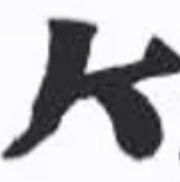Understanding the Healing Power of Reiki - Reiki Dublin Kikoh Reiki
- Mike Mannix

- Sep 22, 2025
- 3 min read
Updated: Sep 26, 2025
Written by Mike Mannix

Reiki is a healing technique that has gained popularity worldwide for its gentle and holistic approach to wellness. Rooted in ancient traditions, it focuses on balancing the body's energy to promote physical, emotional, and spiritual healing. This article explores the basics of Reiki, how it works, and its potential benefits. Whether you are new to energy healing or curious about alternative therapies, this guide will provide clear and practical insights.
The Basics of Reiki: What You Need to Know
Reiki is derived from a Japanese word Ki meaning "universal energy." It is a form of energy healing where a practitioner generates and emits Ki energy through points on their palms to the recipient. The goal is to clear energy blockages and restore balance within the body’s energy system.
Origins: Reiki was developed in the early 20th century by Mikao Usui in Japan.
Method: The practitioner places their hands lightly on or just above the body in a series of positions.
Energy Flow: The energy flows from the practitioner to the recipient, encouraging the body’s natural healing processes.
Sessions: Typically last between 30 to 60 minutes and can be done in person or remotely.
Reiki is non-invasive and can be used alongside conventional medical treatments. It is often sought for stress reduction, relaxation, and overall well-being.

How Reiki Promotes Healing and Well-being
The healing power of Reiki lies in its ability to influence the body’s energy fields. According to practitioners, energy imbalances can lead to physical or emotional issues. Reiki aims to:
Reduce Stress and Anxiety: By promoting relaxation, Reiki helps lower cortisol levels and calms the nervous system.
Enhance Immune Function: Balanced energy supports the body’s natural defenses.
Alleviate Pain: Many recipients report relief from chronic pain conditions.
Improve Sleep Quality: Relaxation induced by Reiki can lead to better sleep patterns.
Support Emotional Healing: Reiki can help release emotional blockages and foster mental clarity.
For example, someone experiencing chronic headaches might find that Reiki sessions reduce the frequency and intensity of their pain by addressing underlying energy disruptions.

Does Reiki Healing Actually Work?
Skepticism about Reiki is common, especially in scientific communities. However, many people report positive experiences. Here’s what research and testimonials suggest:
Scientific Studies: Some Pubmed studies indicate that Reiki can reduce pain and anxiety, though more rigorous research is needed.
Placebo Effect: Even if benefits are partly due to placebo, the depth of relaxation and stress relief are palpable and valuable.
Personal Experiences: Countless individuals share stories of improved well-being and emotional balance after Reiki sessions with Mike at Kikoh Reiki.
It is important to approach Reiki as a complementary therapy rather than a replacement for medical treatment. Its effectiveness may vary from person to person, but the gentle nature of Reiki makes it a safe option to explore.

How to Prepare for a Reiki Session
To get the most out of a Reiki session, consider these practical tips:
Wear Comfortable Clothing: Loose, breathable clothes help you relax.
Arrive with an Open Mind: Being receptive enhances the experience.
Communicate Your Needs: Let the practitioner know about any specific issues or areas of discomfort.
Stay Hydrated: Drinking water before and after helps flush out toxins.
Create a Quiet Environment: Minimise distractions to deepen relaxation.
During the session, you may feel warmth, tingling, or a sense of calm. These sensations indicate energy movement and healing.
Integrating Reiki into Your Wellness Routine
Reiki can be a valuable addition to your health and wellness practices. Here are some ways to incorporate it:
Regular Sessions: Schedule Reiki treatments monthly or as needed for ongoing support.
Self-Reiki: Learn simple hand positions to practice on yourself daily.
Combine with Meditation: Reiki enhances meditation by deepening relaxation.
Use for Emotional Support: During stressful times, Reiki can help maintain emotional balance.
Support Recovery: Use Reiki alongside physical therapy or medical care to aid healing.
For those interested in learning how to use Reiki on themselves or others Mike offers valuable guidance.
Exploring the healing power of Reiki opens a path to greater self-awareness and holistic health. Whether you seek relief from physical ailments or emotional stress, Reiki offers a gentle, supportive approach to well-being. Embracing this ancient practice can enrich your life with balance, peace, and renewed energy.




Comments